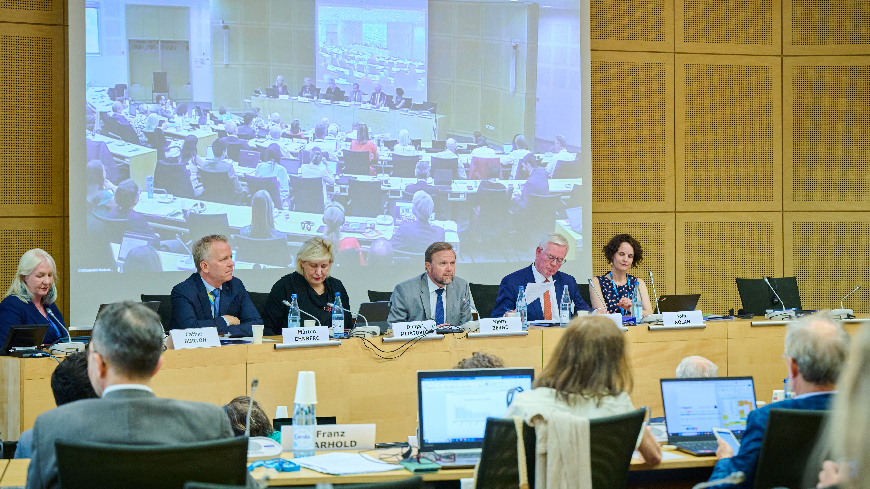The 25th anniversary of the entry into force of the Additional Protocol to the European Social Charter (ETS No. 158) has been marked by an event organised by the Council of Europe’s Department of Social Rights, attended by a wide range of leading stakeholders (governments, social partners, civil society, academia, and representatives of national and international bodies), who discussed the importance of the procedure for the effective protection of social rights in Europe.
In his opening remarks, Deputy Secretary General Bjørn Berge underlined that social rights are the very foundation of a decent society and human dignity. “A collective complaints procedure was designed to give greater effect to social rights on our continent. And that mechanism has delivered: corporal punishment of children has been banned explicitly in several countries, homophobic statements have been removed from school curricula and equal opportunities, not least equal pay between men and women, have been advanced. And experience shows that trade unions and civil society organisations lodge complaints only after serious consideration – exactly as intended”.
Commissioner for Human Rights Dunja Mijatović, highlighted that “a time when I see the extent of the social rights challenges in Europe in my daily work, I can only reiterate that there is no time for complacency. Member states should stand by their promises to defend social rights not only in words but in actions.”
The European Social Charter has been instrumental in inspiring key EU instruments such as the EU Charter on Fundamental Rights and the European Pillar of Social Rights. In addition, any EU action under the EU Treaties’ chapter on social policy must take into account fundamental social rights as guaranteed by the European Social Charter, stated Eamon Gilmore, the EU Special Representative for Human Rights.
For her part, the President of ECSR Aoife Nolan stressed that “The real proof of the value of a system is its impact in practice. The Charter is a legally binding international law treaty. And the European Committee of Social Rights as a treaty body has sole responsibility for making the legal assessment of state compliance with the Charter.”
The European Social Charter is a Council of Europe treaty that guarantees fundamental social and economic rights as a counterpart to the European Convention on Human Rights, which guarantees civil and political rights. It represents a broad range of everyday human rights related to employment, housing, health, education, social protection and welfare.
The opening of the event was followed by discussions in two separate panels. The first panel examined the aims and the functioning complaints procedure in detail, while the second one focused on its impact and the main challenges to its practical application.
The Department of Social Rights also presented a video explaining the added value of the collective complaints procedure as a key instrument of democratic governance.
Press release
Deputy Secretary General speech


